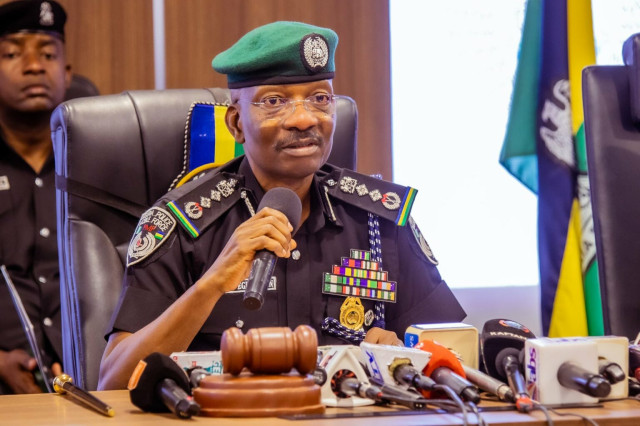The Inspector General of Police, Kayode Egbetokun, and the Conference of Speakers of State Houses of Assembly presented differing opinions on the push for the establishment of state police during a dialogue held in Abuja on Monday.
Egbetokun emphasized that the Nigeria Police Force requires better funding to effectively address the country's security issues, while Debo Ogundoyin, Chairman of the Conference of Speakers, advocated for a multi-tiered policing model similar to those in other regions.
The discussion was part of a legislative dialogue on constitutional review regarding national security. Egbetokun pointed out that the Nigerian Police Force is established by Section 214(1) of the amended 1999 Constitution, which stipulates that only one police force for Nigeria can exist.
He also referenced Section 215(1), which details that the President appoints the Inspector General of Police with advice from the Nigerian Police Council.
He stressed that these legal frameworks underline the centralized nature of Nigerian policing and the authority held by the Inspector General under the President's supervision.
Egbetokun acknowledged the arguments for state police, highlighting the need for responsive local law enforcement, faster reactions to community threats, and decentralization.
Nevertheless, he argued that Nigeria is currently unprepared to grant policing powers to states due to the complicated nature of the national security situation, which ranges from insurgency and banditry to secessionist violence and piracy.
He noted that the existing constitutional framework presents challenges, including ambiguity in joint operation command, lack of a framework for intelligence sharing, and unclear guidelines regarding local and state policing as well as border security.
The challenges highlighted emphasize the need to adjust our national security framework, particularly regarding command authority, policy structure, intelligence coordination, and the legislative foundations that support them.
"Importantly, previous national security summits and discussions have yielded strong communiques and substantial recommendations," he noted.
Egbetokun pointed out that ambiguity in operational command authority, especially in joint operations involving federal, state, and local security organizations working together, has led to legal conflicts, weakened accountability, and delayed responses in critical situations.
He urged the National Assembly to consider legislative changes that enhance federal policing capacity while permitting structured auxiliary support from lower levels of government with strict constitutional and operational safeguards.
However, Ogundoyin disagreed with this notion, emphasizing the dedication of state legislatures to state policing.
He stated, “As the speakers of the Houses of Assembly across the country, we understand the pressing security issues differently faced in our various states.
We recognize the President's unwavering commitment to strengthening our security institutions and fostering trust in our collective resolve. This is an opportunity to align our legislative priorities with the realities our citizens encounter, ensuring that the constitutional and legal framework for security evolves to meet the current and future challenges faced by the Nigerian Police Force and other agencies, which continue to make sacrifices for our nation's safety, even under challenging conditions.
It has become clear that a centralized policing system, despite good intentions, is overstretched. On this basis, the Conference of Speakers of State Legislatures of Nigeria partially supports the creation of state police as a constitutional necessity."
Ogundoyin clarified that the push for state police is not simply a political stance but a patriotic and strategic necessity. “We acknowledge the concerns regarding potential misuse, capacity issues, limitations, and jurisdictional conflicts.
This represents the perspective of the sub-nationals in this federation. Whether we are in agreement or not, we must recognize that Nigeria comprises 36 states and the Federal Capital Territory, and the people are advocating for state police.
Additionally, the conference supports the enhancement of intelligence sharing, interagency coordination, increased funding, training, and improved welfare for security personnel, along with a stronger legal framework to tackle emerging threats such as cybercrime, transnational terrorism, and arms reform,” he added.




















